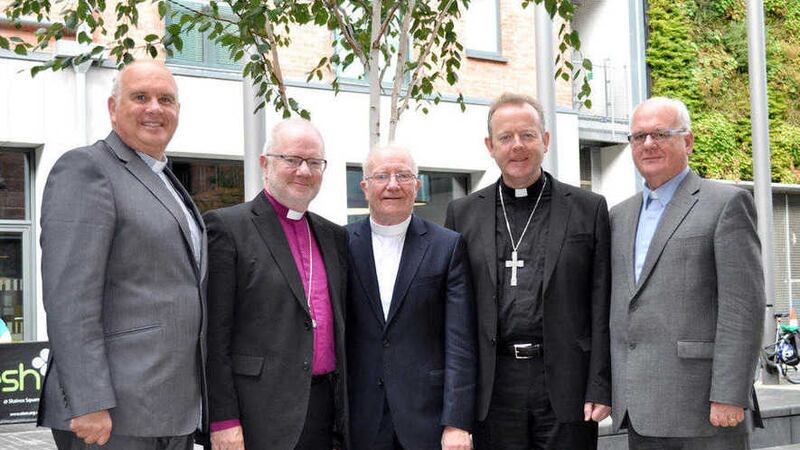The heads of the four main churches in Northern Ireland have come together to bless the new Stormont talks. Unfortunately, their 500-word statement only repeats the cliched liturgy undermining Stormont compromise.
There is a Biblical lesson in our present difficulties in that money is the root of all evil. This applies not just to paramilitary gangs, which now exist solely for financial reasons, but to the entire talks agenda, which is deadlocked over welfare reform. Agreeing a new figure somewhere between Sinn Fein and London’s last positions should begin to fix everything.
But how much harder is that to do, for the left-leaning nationalist parties in particular, with ridiculous poverty hysteria setting the political tone? The original Stormont House talks were distracted for months by a Nicva report claiming welfare reform would cause economic devastation - a claim it later had to admit was nonsense. Despite that very public debunking, the churches’ statement shows how readily we have adopted lazy background assumptions of widespread, chronic deprivation.
“Increasing levels of poverty” is the churches’ central message, although every objective indicator says otherwise. Northern Ireland is an affluent society emerging from a recession that left us relatively unscathed, due to the public sector’s huge share of our economy. Total public spending here continues to rise, unemployment is falling, inflation is effectively zero, benefits and tax credits are annually uprated by one per cent and wages are expected to stabilise, if they have not done so already (this year’s figures are not out until November.) How in the name of four flavours of God does that mean poverty is getting worse?
“The unacceptable level of child poverty, affecting over 100,000 children, roughly 6 per cent of Northern Ireland’s population, constitutes a real crisis,” the statement continues, in an excerpt that made numerous headlines. It beggars belief that anyone is still seriously citing the discredited ‘child poverty measure’, which is always roughly 100,000 in Northern Ireland because it is circularly defined to be so. A revealing quirk of this mathematical campaign tool is that its banner statistic goes down in recessions and up in recoveries, so if the churches think general poverty is rising, child poverty must be falling. Hallelujah!
Connoisseurs of civic society alarmism will realise from the above that claims of literal starvation and exposure are only moments away. And lo it came to pass that the churches praised: “community and faith-based organisations... provid[ing] a safety net for the most vulnerable and marginalised, including the basic necessities of food [and] shelter.”
What the churches did not mention is how few people need such a net, or that the few holes in it are not really fiscal.
Only 20 people regularly sleep rough in Northern Ireland, according to a recent assembly answer, mostly due to needs unmet by complexity rather than by resources. A mercifully small number of children go unfed because of terrible parenting and a mercifully small number of families go to food banks because of terrible budgeting but it is likely that not one single person in Northern Ireland at any given time is hungry for want of money. Conjuring up these Dickensian spectres and implicitly linking them to large chunks of the population is absurd.
Connoisseurs of the rights sector will recognise the overall phantom raised by the churches’ statement, which warns in its opening paragraph that “threats to the peace process are most keenly felt in those areas that benefited least from the progress of recent years.” This is a clear invocation of ‘where’s our peace dividend?’ - that slightly sinister question often ascribed to allegedly deprived communities.
It is a question overdue a firm response. The peace dividend for these communities is having their elected representatives - invariably Sinn Fein and the DUP - governing Northern Ireland for the past eight years. If they do not like the results, they should vote for someone else. If they will not do so because the other side might not follow suit, then they have prioritised a tribal stand off over better government and may live with the consequences - especially as everyone else has to live with the consequences. In short, slap democracy up them.
Stormont’s deadlock is solvable but the mood music around the talks will not be improved by preachers at the back - religious and secular - playing a funeral march on the media organ. Let their sermon be to count our blessings while Stormont counts out our many, many shekels. Lord knows we have enough to go around.









